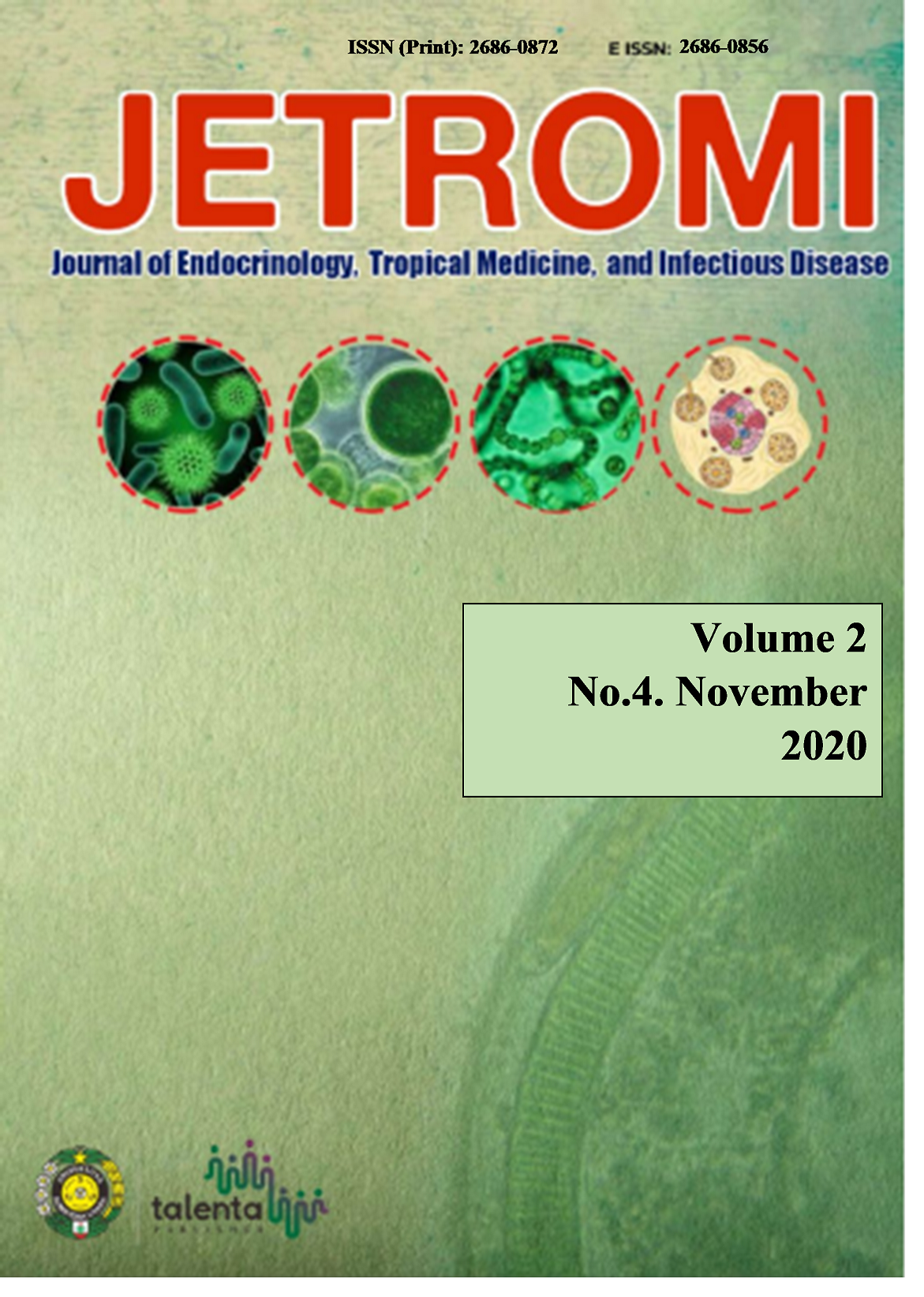Pituitary Macroadenoma with Apoplexy in an Adult: A Case Report
DOI:
https://doi.org/10.32734/jetromi.v2i4.4909Keywords:
Pituitary macroadenoma, conservative treatmentAbstract
Abstract: Pituitary adenomas are the most common type and benign tumours arising from hormone expressing cells in the anterior pituitary gland. They account for 10% to 15% of all intracranial masses. Pituitary adenomas present clinically in three ways: syndromes of hormone hypersecretion or deficiency; neurologic manifestations from mass effect of an expanding gland; or an incidental finding on imaging done for an unrelated issue. A 49-years old man, was reffered to the hospital with symptoms of chronic headache and blurred vision. General physical examination revealed no abnormalities. History of previous illness and medication were unremarkable. MRI brain showed hyperintense lesion in suprasellar/selllar area. Hormone assay reciprocally revealed hypocortisolism and hyperprolactinemia.
Abstrak: Adenoma hipofisis merupakan tumor jinak tersering dari sel penghasil hormon di kelenjar hipofisis anterior, berkisar 10%-15% dari seluruh massa intrakranial. Adenoma hipofisis secara klinis bermanifestasi dalam tiga cara: sindrom hipersekresi atau defisiensi hormon; manifestasi neurologis dari efek massa yang membesar; atau temuan secara tidak sengaja pada modalitas pencitraan. Seorang laki-laki berumur 49 tahun dirujuk ke rumah sakit dengan kkeluhan sakit kepala kronik dan pandangan kabur. Pemeriksaan fisik secara umum dalam batas normal. Riwayat penyakit sebelumnya atau pengobatan juga tidak spesifik. MRI otak menunjukkan lesi hiperintens pada area suprasellar/sellar. Temuan pemeriksaan hormon juga sejalan menunjukkan hipokortisolisme dan hiperprolaktinemia.
Downloads
Downloads
Published
Issue
Section
License
Copyright (c) 2020 Journal of Endocrinology, Tropical Medicine, and Infectiouse Disease (JETROMI)

This work is licensed under a Creative Commons Attribution-NonCommercial-ShareAlike 4.0 International License.
The Authors submitting a manuscript do so on the understanding that if accepted for publication, copyright of the article shall be assigned to Journal of Endocrinology, Tropical Medicine and Infectious Diseases (JETROMI).
Copyright encompasses exclusive rights to reproduce and deliver the article in all form and media. The reproduction of any part of this journal, its storage in databases and its transmission by any form or media, will be allowed only with a written permission from Journal of Endocrinology, Tropical Medicine and Infectious Diseases (JETROMI).








